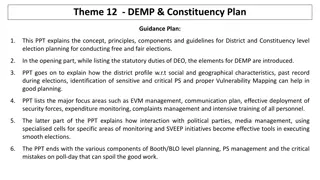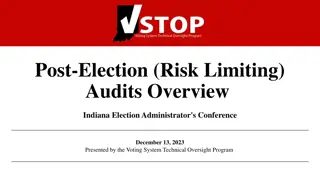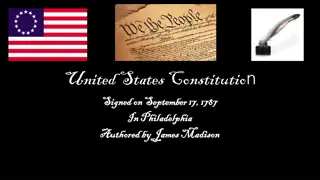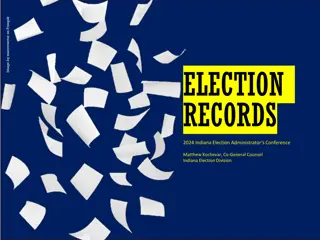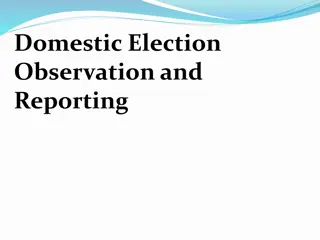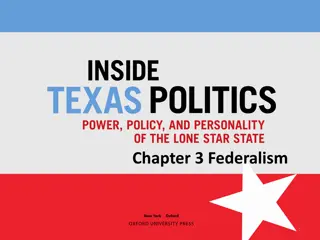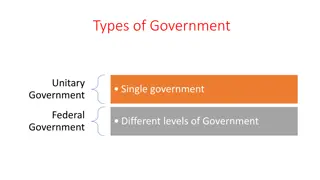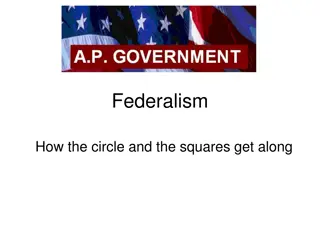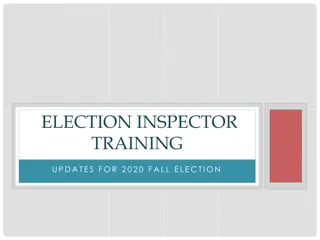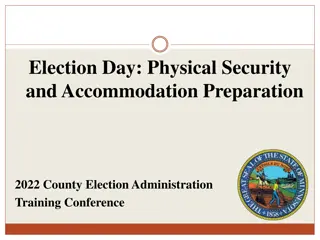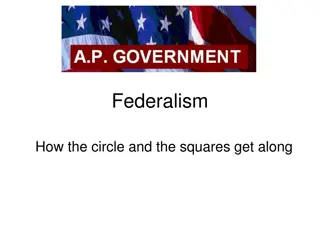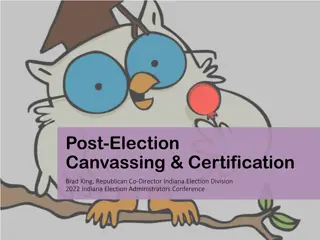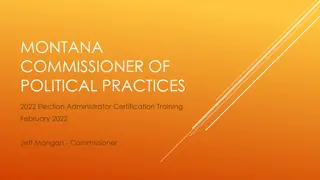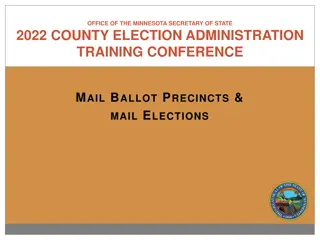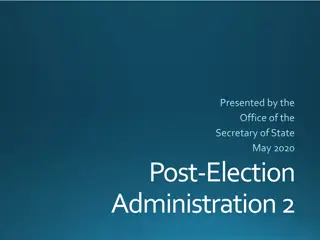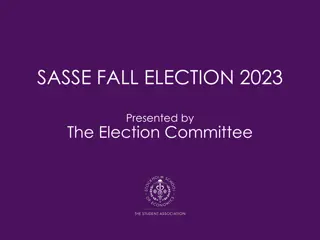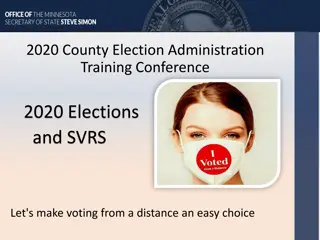Federalism and Election Administration in 2022
Explore the intersection of federalism and election administration in the 2022 U.S. elections, focusing on challenges such as election denialism, security measures, and the roles of state and federal officials. Learn about the key concepts of election oversight, the impact of electoral processes at the state and local levels, and debates on election security and government involvement in election administration.
Download Presentation

Please find below an Image/Link to download the presentation.
The content on the website is provided AS IS for your information and personal use only. It may not be sold, licensed, or shared on other websites without obtaining consent from the author.If you encounter any issues during the download, it is possible that the publisher has removed the file from their server.
You are allowed to download the files provided on this website for personal or commercial use, subject to the condition that they are used lawfully. All files are the property of their respective owners.
The content on the website is provided AS IS for your information and personal use only. It may not be sold, licensed, or shared on other websites without obtaining consent from the author.
E N D
Presentation Transcript
CQ Press Election Spark FEDERALISM AND THE 2022 ELECTION CONNECTING THE 2022 ELECTION TO YOUR AMERICAN GOVERNMENT CLASSROOM
Administering Elections How we run elections in the United States is an example of federalism. In the US, states are the ones that administer elections. States determine how people can vote, when people can vote, where people can vote, and train the workers that run elections. At the same time, states work with federal officials to make sure voting is safe and elections run smoothly. There are also national laws states must follow when administering elections. https://www.youtube.com/watch?v=Eza-4xH- ye0&t=55s One issue facing states in 2022 was election denialism. This resulted in threats made against election workers. What did states do to reduce the risk of election results being challenged? 2
Election Security States are responsible for ensuring elections are safe and secure, but they vary on how they secure ballots. During the 2022 election, many Republican candidates made claims of widespread voting fraud in 2020, even though there is no evidence of this. These accusations do make people question what states are actually doing to prevent voting fraud. https://www.youtube.com/watch?v=BGOkXBgScR Y&t=33s This video features an interview with Tammy Patrick, a former election official in Arizona. In this interview she discusses what states do to ensure elections are secure. What do states do to prevent voting fraud? 3
Background and Key Concepts By federal law each state must designate an official to oversee elections in their state. In 33 states the chief election official is elected. In six states the governor appoints this person. The legislature appoints the chief official in four states and in seven states a board or commission selects the chief election official. Seventeen states and Washington DC have a board or commission that oversees elections. At the local level, 34 states have a single individual or entity overseeing elections in the local area (usually a county). In 26 states it is an individual and in 8 it is a board or commission that oversees elections at the local level. 4
Optional Data 5
Assessment Debate: What should states do to insure elections are safe and secure? Why is the loss of many election officials dangerous for democracy? Poll: Should the national government be more involved in election administration? Should state election officials be elected or appointed? Short Answer: What new challenges did election officials face in 2022? 6
OptionalTopics for Further Discussion States and voter registration How states encourage or discourage voter turnout Moore v Harper Federal Voting Rights legislation 7
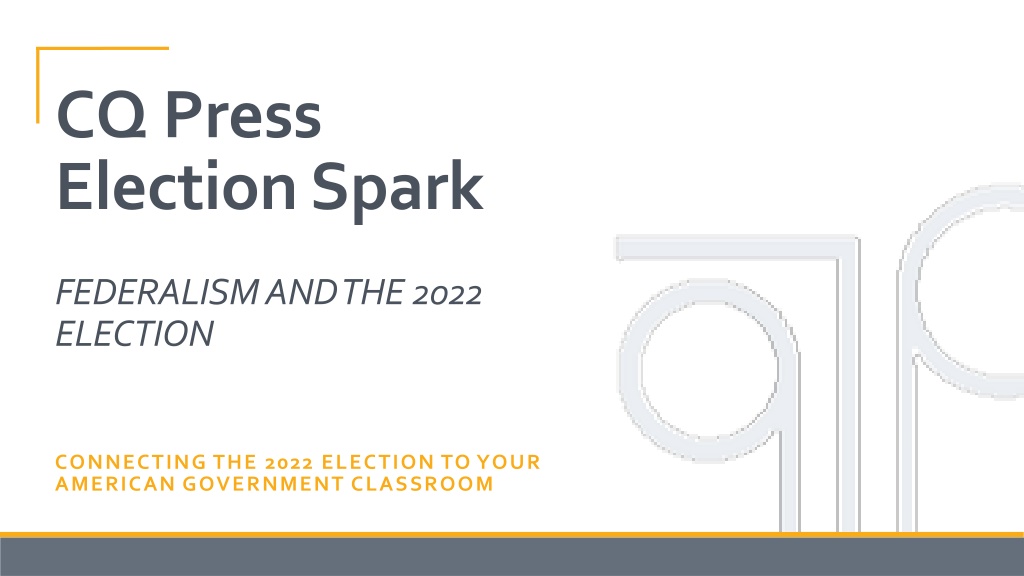
 undefined
undefined
















